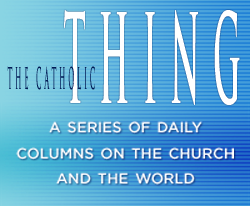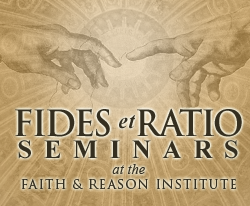Unmaking a Mess
faithful Catholic finds him or herself in a complicated situation these days. It’s not just the age-old opposition from “the world.” Too many people, including Catholics in the pews and even in the Vatican, now seem to think that the world’s opposition arises because of something we’ve done wrong – e.g., offending LGBT activists or actually believing what’s been revealed by God. Or, in line with the Church’s longstanding cultivation of our God-given capacities, we stubbornly insist on the truths discoverable by the interplay of Faith and Reason.
By contrast, a Certain Person warned us from the beginning: “If the world hates you, know that it hated me before it hated you. If you were of the world, the world would love you as its own; but because you are not of the world, but I chose you out of the world, therefore the world hates you.” (John 15:18-19) And there’s a clear reason for this: “it hates Me, because I testify that its works are evil.” (John 7:7)
It’s a troubling feature of the postmodern condition that talk of Good and Evil is regarded as “simplistic” by many people, even – the horror! – judgmental. At least when Christians are concerned. Yet at the same time, our culture is full of very poorly formulated, but quite absolute, condemnations of people judged to be engaged in evils like racism, sexism, patriarchy, “colonialism,” Western civilization, transphobia, Islamophobia – all usually regarded as, in some vague way, connected to traditional Christianity.
Untangling this mess of half-truths and outright fictions presents one of the greatest challenges to Christian life in our time – an urgent task, not just for the scholars but for all of us on a daily basis. Jesus was not afraid to speak of Good and Evil – as valid distinctions for all people in every place at all times. He didn’t think that there was liberation or sophistication in speaking of “my truth” and “your truth” as the most up-to-date marker of your personal dignity, as if there were no overarching common and real Truth.



